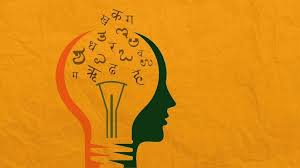The Intersection of NEP 2020, Social Media, and Kashmir’s Classroom Challenges
Srinagar 15 April 2025: Preserving the Sanctity of the Teacher-Student Bond in the Digital Age
For centuries, teachers in India have been revered as the cornerstone of knowledge and moral guidance. However, this sacred bond faces new challenges in the 21st century, where digital media, shifting societal values, and evolving education policies like the National Education Policy (NEP) 2020 and the National Curriculum Framework (NCF) 2022 are reshaping the dynamics of classrooms across the country. In Kashmir, the ongoing struggle to restore respect for teachers amid disruption and scrutiny paints a vivid picture of this transformation.
Eroding Respect in a Digital Landscape
The traditional deference for educators, once rooted in discipline and trust, has been increasingly challenged. Empowered by the accessibility of information and emboldened by the anonymity of social media, students are questioning authority more freely—a phenomenon that can fuel critical thinking but risks tipping into entitlement or disrespect.
This phenomenon is exacerbated in Kashmir, where teachers not only provide academic knowledge but also serve as stabilizers in an uncertain socio-political environment. However, narratives on social media, often taken out of context, have amplified mistrust, putting teachers in vulnerable positions and eroding their authority.
NEP 2020 and NCF 2022: A New Educational Vision
The NEP 2020 and its subsequent curriculum framework aim to revolutionize the education system with a focus on holistic development, experiential learning, and values-based education. These policies advocate for a paradigm shift from rote memorization to a student-centered approach, emphasizing respect for teachers as mentors.
Key goals include:
- Empowering Teachers: Recognizing educators as facilitators of not just academic but moral and ethical development.
- Values-Based Learning: Cultivating respect, discipline, and empathy alongside academic pursuits.
- Critical Thinking and Flexibility: Balancing authority and curiosity within the classroom.
Yet, the success of these initiatives rests on society’s willingness to embrace these cultural shifts.
The Impact of Social Media
While social media can be a powerful tool for learning, its misuse poses a significant challenge to the teacher-student relationship. Viral content, often misrepresentative, can tarnish reputations overnight, leaving educators vulnerable. This issue is particularly pronounced in Kashmir, where social media has the power to amplify distrust. Teachers often find themselves navigating this digital ecosystem, acting as both educators and counselors for students heavily influenced by online content.
Additionally, the free flow of digital information often results in students forming worldviews that clash with the traditional classroom structure, forcing teachers to continuously adapt to remain relevant.
Strategies to Rebuild Respect
Reinstating respect for teachers requires a collective effort from all stakeholders:
- Teacher Training: Equip educators to handle digital-era challenges, ensuring they can balance empathy with authority.
- Digital Literacy for Students: Educate young minds on the consequences of online behavior and the importance of context.
- Community Involvement: Encourage parents and communities to actively promote respect for teachers, bridging the gap between home values and classroom expectations.
- Policy Implementation: Support NEP 2020’s goals by providing infrastructural and societal backing for teacher empowerment.
- Celebrate Educators: Recognize and honor the invaluable contributions of teachers to societal development, especially in conflict-prone areas like Kashmir.
The Kashmir Perspective
In Kashmir, educators bear the additional weight of societal stability. Amid decades of unrest, they have often been the sole pillars of continuity and guidance. While the NEP and NCF provide a framework for restoring respect, in regions like Kashmir, where emotions and opinions run high, tangible measures such as creating protective mechanisms for teachers and fostering inclusive narratives are critical.
Bottom-Line
As India embarks on an educational renaissance under NEP 2020, the restoration of respect for teachers is not merely aspirational but essential. In an age dominated by digital influences, educators must be empowered and protected, especially in challenging regions like Kashmir. By creating a culture of mutual respect and understanding, the promises of these policies can transform classrooms into sanctuaries of learning, curiosity, and shared values.




